Beyond the Firewall: Rethinking Payment Data Security
Finextra
JUNE 13, 2025
We use cookies to help us to deliver our services. You may change your preferences at our Cookie Centre. Please read our Privacy Policy.
This site uses cookies to improve your experience. To help us insure we adhere to various privacy regulations, please select your country/region of residence. If you do not select a country, we will assume you are from the United States. Select your Cookie Settings or view our Privacy Policy and Terms of Use.
Cookies and similar technologies are used on this website for proper function of the website, for tracking performance analytics and for marketing purposes. We and some of our third-party providers may use cookie data for various purposes. Please review the cookie settings below and choose your preference.
Used for the proper function of the website
Used for monitoring website traffic and interactions
Cookies and similar technologies are used on this website for proper function of the website, for tracking performance analytics and for marketing purposes. We and some of our third-party providers may use cookie data for various purposes. Please review the cookie settings below and choose your preference.

Finextra
JUNE 13, 2025
We use cookies to help us to deliver our services. You may change your preferences at our Cookie Centre. Please read our Privacy Policy.

Clearly Payments
JULY 23, 2025
In 2025, staying compliant with payment rules is essential for businesses of every size. Payment compliance means following the rules that govern how businesses accept and handle card payments. These rules come from multiple sources, including card networks, regulators, and your payment processor. What Is Payment Compliance?
This site is protected by reCAPTCHA and the Google Privacy Policy and Terms of Service apply.

The Fintech Times
JULY 8, 2025
The American Fintech Council (AFC), the industry association representing both responsible fintech companies and innovative banks, has filed an amicus brief in favour of the new rule introduced by the Consumer Financial Protection Bureau (CFPB) in the Forcht Bank, N.A. This rule delivers both, and we’re proud to support it.”

Finextra
JUNE 11, 2025
s AI Revolution 13 June David Weinstein Co-founder and CEO at KayOS Why the Smartest Fintechs Are Scaling with AI Agents – Not Headcount 13 June James Richardson Global Head of Solutions at Bottomline Beyond the Firewall: Rethinking Payment Data Security 13 June Now Hiring All companies Welcome to Finextra.

Finextra
JUNE 26, 2025
They want to know that their personal and financial data is secure. When you follow compliance rules, you reduce the risk of fraud, chargebacks, and penalties. Non-compliance, on the other hand, can lead to data breaches and legal troubles. PCI DSS stands for Payment Card Industry Data Security Standard.

The Payments Association
JUNE 3, 2025
Moreover, network tokenisation reduces the regulatory burden by eliminating the need to store sensitive card data, supporting the Payment Card Industry Data Security Standard (PCI DSS) compliance and lowering the risk of data breaches. ” – Antony Lane, sales account manager at G+D Defining tokenisation 2.0
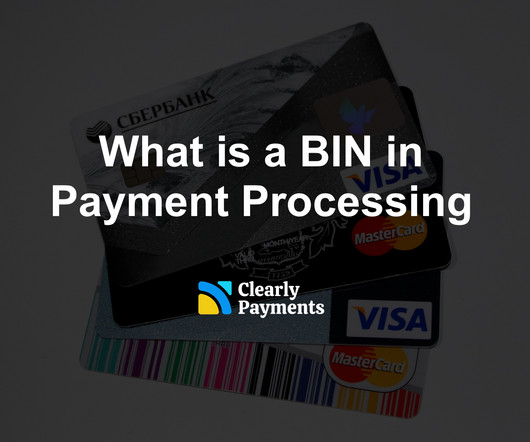
Clearly Payments
NOVEMBER 13, 2024
Card Type : Specifies whether the card is a credit card, debit card, prepaid card, or other, allowing merchants to apply appropriate processing rules. Additional Data : Some BINs provide extra details, such as whether the card is for personal or business use, or if it’s part of a high-reward program.

The Payments Association
NOVEMBER 12, 2024
Vendor Dependence: Reliance on a third party for critical functions and data security. Data Privacy Concerns: Sharing sensitive data with vendors may introduce privacy and compliance risks. .” Armstrong identifies a prevalent belief that developing such a system is primarily about implementing a rules engine.

Stax
APRIL 3, 2025
Theyre easy to integrate and set up, with the host taking care of data security measures, including PCI compliance and fraud protection. Businesses using self-hosted gateways must handle data security measures and comply with industry standards like PCI DSS. But with more control comes great responsibility.

Clearly Payments
JULY 17, 2025
Built-In PCI and Data Security Compliance All payment processing meets security standards to protect sensitive client and payment information with PCI DSS. Why Escrow Compliance Matters for Law Firms Trust accounting violations are among the most common reasons for disciplinary action against lawyers.

Stax
JANUARY 21, 2025
Consider the following security and compliance features when choosing a payment gateway: PCI DSS Compliance – The Payment Card Industry Data Security Standard (PCI DSS) is a set of rules and principles designed to keep payment card information safe and secure.

Finextra
JUNE 13, 2025
No outside rules. s AI Revolution 13 June David Weinstein Co-founder and CEO at KayOS Why the Smartest Fintechs Are Scaling with AI Agents – Not Headcount 13 June James Richardson Global Head of Solutions at Bottomline Beyond the Firewall: Rethinking Payment Data Security 13 June Now Hiring All companies Welcome to Finextra.

Stax
MARCH 11, 2025
Encryption and transfer of payment information The payment gateway that underpins your checkout page will now encrypt the customers payment details as stipulated by industry data security regulations like PCI DSS (Payment Card Industry Data Security Standard) before transferring the data to your payment processor.

FloQast
MARCH 19, 2025
From here, the agent transforms such data using natural language inputs. Once the data is processed, the agent applies relevant accounting assumptions based on historical patterns and your departments specific rules to contextualize the content. From there, the agent delivers the data to its intended destination.

Finextra
JUNE 14, 2025
In essence, it provides the rails and rules that allow money to move securely between parties worldwide. Mastercard operates one of the world’s fastest payment processing networks, acting as the intermediary for electronic funds transfers on debit, credit, and prepaid cards. We use cookies to help us to deliver our services.
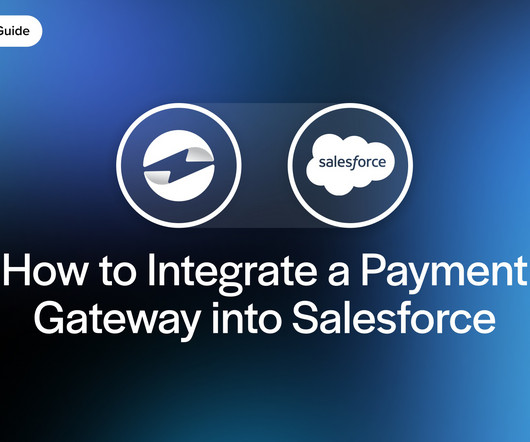
EBizCharge
APRIL 24, 2025
Increased security and compliance: Reputable Salesforce payment integrations are designed with strong security protocols and compliance with Payment Card Industry Data Security Standards (PCI DSS). Lastly, testing custom workflows or automation rules that depend on payment triggers is also helpful.
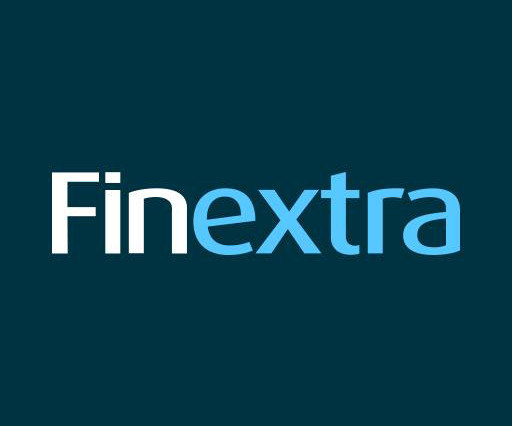
Finextra
JUNE 18, 2025
Legacy systems are limited in their ability to handle this type of fraud due to outdated architectures, fragmented data, and reliance on rigid rule-based detection. Many systems are also still heavily reliant on manual investigation processes. Tracking fraud is another major headache. We use cookies to help us to deliver our services.

Stax
NOVEMBER 14, 2024
The bank will typically ask for proof of purchase from the merchant and use this proof to make an ultimate ruling on the chargeback. PCI compliance refers to a business’s adherence to the Payment Card Industry Data Security Standard, a set of guidelines to safeguard sensitive consumer data.

The Fintech Times
FEBRUARY 28, 2025
“Another big challenge is related to data security and privacy. AI works through vast reams of data to perform its functions well, and the security of the data and responsible use are essential. AI regulations are nascent, with a growing, fragmented patchwork of federal, state, and industry-specific rules.

Fintech Review
APRIL 11, 2025
As fintech platforms handle sensitive data and money, regulators must ensure transparency, fairness, and data security. Digital lenders, neobanks, and payment firms must comply with capital requirements, operational standards, and governance rules. New rules can affect product design, pricing, or go-to-market strategies.

Finextra
JUNE 30, 2025
While there are not yet AI-specific financial regulations in force, UK banks anticipate incoming rules. Meanwhile, data privacy and model transparency are top concerns in the UK (as they are elsewhere). A Statista poll in 2024 showed data security was the leading barrier to scaling GenAI in UK finance, cited by 33% of firms.

Stax
APRIL 8, 2025
They facilitate transactions by connecting merchants, credit card processors, and banks while establishing rules, regulations, and fees for processing payments. Credit card network – Mastercard, Visa, American Express, and Discover are the biggest payment networks in the US. Also known as card companies or card issuers (e.g.,

Stax
MARCH 5, 2025
As a general rule of thumb, if they keep tacking on extra costs and fees, wed recommend looking elsewhere. Security Its a given to have a provider that protects cardholder data in this digital age. These things can add up, so make sure to ask providers about how much they charge and compare different rates.

Finextra
JULY 7, 2025
Even the largest fintech players rely on colocation to scale data operations under strict privacy rules. While some may eventually build their own data centres, colocation remains a practical and agile choice for many, delivering scalability without the constraints of rigid, expensive setups. Please read our Privacy Policy.

The Payments Association
FEBRUARY 3, 2025
Regulators must establish a supportive environment with clear, consistent rules that promote competition while guaranteeing data security. To overcome existing barriers, a collaborative effort involving all stakeholders is crucial.

Finextra
JUNE 12, 2025
Verification of Payee (VOP) scheme rules have been released by the European Payment Council (EPC) to comply with the EU’s Instant Payments Regulation (IPR). As implementation progresses, financial institutions are grappling with data security, core banking change, and ensuring all-channel implementation of VOP.

Stax
JULY 7, 2025
Visa, Mastercard, Discover) has its own rules and guidelines for surcharging, particularly around signage. Security and compliance: Verify that the provider adheres to industry standards, such as Payment Card Industry Data Security Standard (PCI DSS) compliance, to protect sensitive customer data and minimize the risk of data breaches.

Open Banking Excellence
JULY 8, 2025
Consumer Financial Protection Bureau (CFPB) had worked to address these regulatory gaps by developing new rules under the Dodd-Frank Act’s Section 1033. However, in mid-2025, the CFPB moved to vacate its own final rule, stating it exceeded its statutory authority. has seen a more fragmented, market-driven evolution.
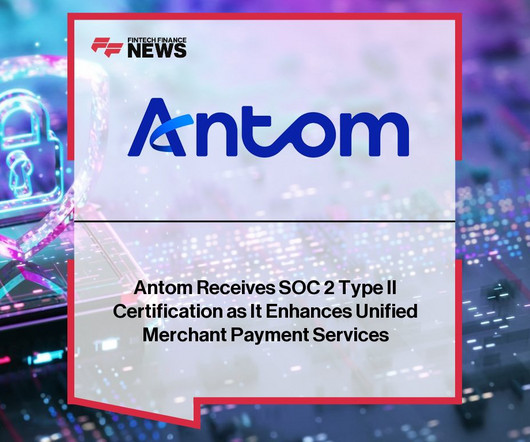
Fintech Finance
MARCH 3, 2025
Antom , a leading unified merchant payment services provider under Ant International, has received Service Organization Control (SOC) 2 Type II certification, a globally recognised benchmark for data security and privacy protection.

The Payments Association
MARCH 18, 2025
Unlike open finance, which typically operates within regulated frameworks, open data relies heavily on voluntary data sharing and commercial agreements. This raises profound questions around privacy, consent, data security, and liability. As of 2023, account-to-account (A2A) transactions in the U.S. reached $1.1
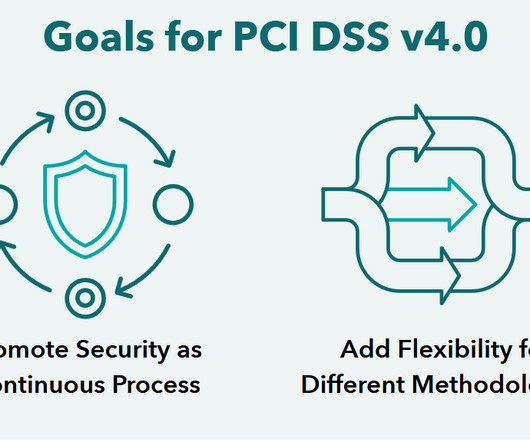
Cardfellow
APRIL 27, 2025
The full name (PCI DSS) stands for Payment Card Industry Data Security Standard and its a set of rules to help keep cardholders information secure. For a quick refresher, PCI refers to security standards that apply to all businesses that accept credit cards. version requires transport layer security (TLS) 1.2
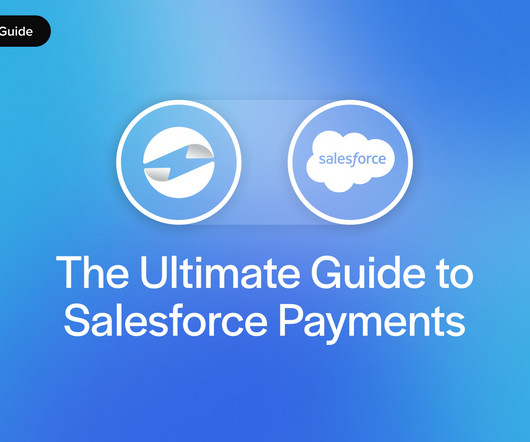
EBizCharge
APRIL 22, 2025
PCI compliance and security Integrated payment gateways typically come with built-in security features such as full compliance with Payment Card Industry Data Security Standards (PCI DSS) , tokenization, and encrypted data transmission.

Finextra
JUNE 30, 2025
This can concern payments, conditional payments (a DLT based version of a letter of credit) and the post-trade settlement of securities and derivates (including margin calls). We use cookies to help us to deliver our services. You may change your preferences at our Cookie Centre. Please read our Privacy Policy.
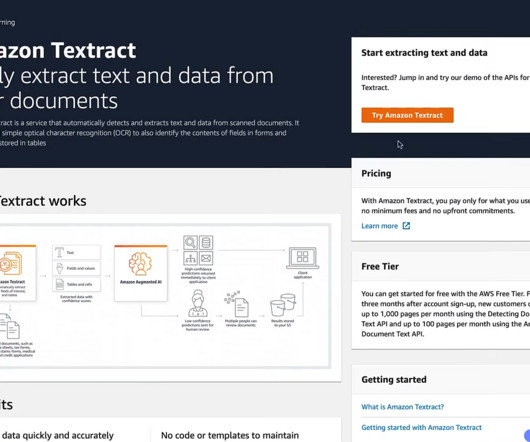
Nanonets
NOVEMBER 18, 2024
3 Rossum Cognitive data capture 4.4/5 4 Docparser Rule-based extraction 4.6/5 Cognitive data capture without templates 2. Extensive validation rules engine 5. Docparser Docparser template-based extraction Docparser offers a rule-based approach using zonal OCR technology. Automated data formatting 6.

Innovative Payments Association
JUNE 27, 2025
Session 2: IPA Compliance Boot Camp Open banking has long promised to reshape the financial services ecosystem, empowering consumers with control over their data and promoting greater innovation through API-driven access. But the celebration was short-lived. Litigation quickly followed.
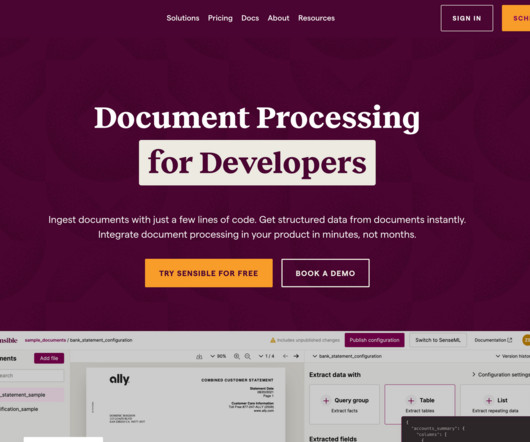
Nanonets
NOVEMBER 19, 2024
By automating document-based workflows , Docparser can extract data fields such as shipping addresses, purchase order numbers, and dates, organize them into a tabular format, and move information to where it belongs. page thereafter. page thereafter. Business : 1 workspace, 10 users, unlimited models, AutoML, and support.

Finovate
JANUARY 24, 2025
The regulatory landscape for fintechs and financial services companies operating in the European Union is expected to undergo significant changes this year, with new standards, guidelines, and rules governing payments, data privacy, digital assets, and more. What makes the EU AI Act stand out is its risk-based approach.

Nanonets
NOVEMBER 13, 2024
It integrates AI-driven digital workers into enterprise workflows, enabling organizations to automate complex, rule-based tasks at scale. With its robust security framework and scalability, Blue Prism is particularly suited for industries like finance, healthcare, and insurance that require high levels of compliance and data integrity.

Payments Dive
JULY 24, 2025
open banking rule move forward. open banking rule. The fintechs want Trump to direct the bureau “to ask the court to affirm that consumers, not big banks, control their financial data and have the right to access and share it with companies of their choice at no cost.” a global leader in financial services.

Finextra
JUNE 18, 2025
s AI Revolution 13 June David Weinstein Co-founder and CEO at KayOS Why the Smartest Fintechs Are Scaling with AI Agents – Not Headcount 13 June James Richardson Global Head of Solutions at Bottomline Beyond the Firewall: Rethinking Payment Data Security 13 June Now Hiring All companies Welcome to Finextra.

Payments Dive
JULY 15, 2025
Financial technology companies assailed a move by JPMorgan Chase to begin assessing fees for access to customer financial data. The move likely foreshadows stricter control over consumer data by large banks if a federal court rejects a Consumer Financial Protection Bureau rule that was aimed at opening up access to data.

Nanonets
NOVEMBER 18, 2024
Product Main feature G2 rating Free trial Pricing Total score* 1 Rossum Cloud-based AI platform for data extraction 4.4/5 2 Nanonets 98% data accuracy with AI and highly customizable workflows 4.8/5 7 Docparser Rule-based data extraction from documents 4.6/5 5 No Custom pricing 43.8 5 No Custom pricing 46.3

Nanonets
NOVEMBER 23, 2024
Secure storage: Organizes documents in folders with unlimited storage for easy access. Role management: Assigns user roles to control access and ensure data security. Bank statement conversion: Turns PDFs into CSVs for quick import into Xero.

Finextra
JULY 7, 2025
This article delves into the multifaceted reasons behind this phenomenon, exploring why organizations are choosing to keep their AI contained within the familiar confines of their data silos. The Security Fortress: Protecting Data in a Vulnerable World At the heart of this reluctance lies a deep-seated concern for data security and privacy.
Expert insights. Personalized for you.
We have resent the email to
Are you sure you want to cancel your subscriptions?


Let's personalize your content